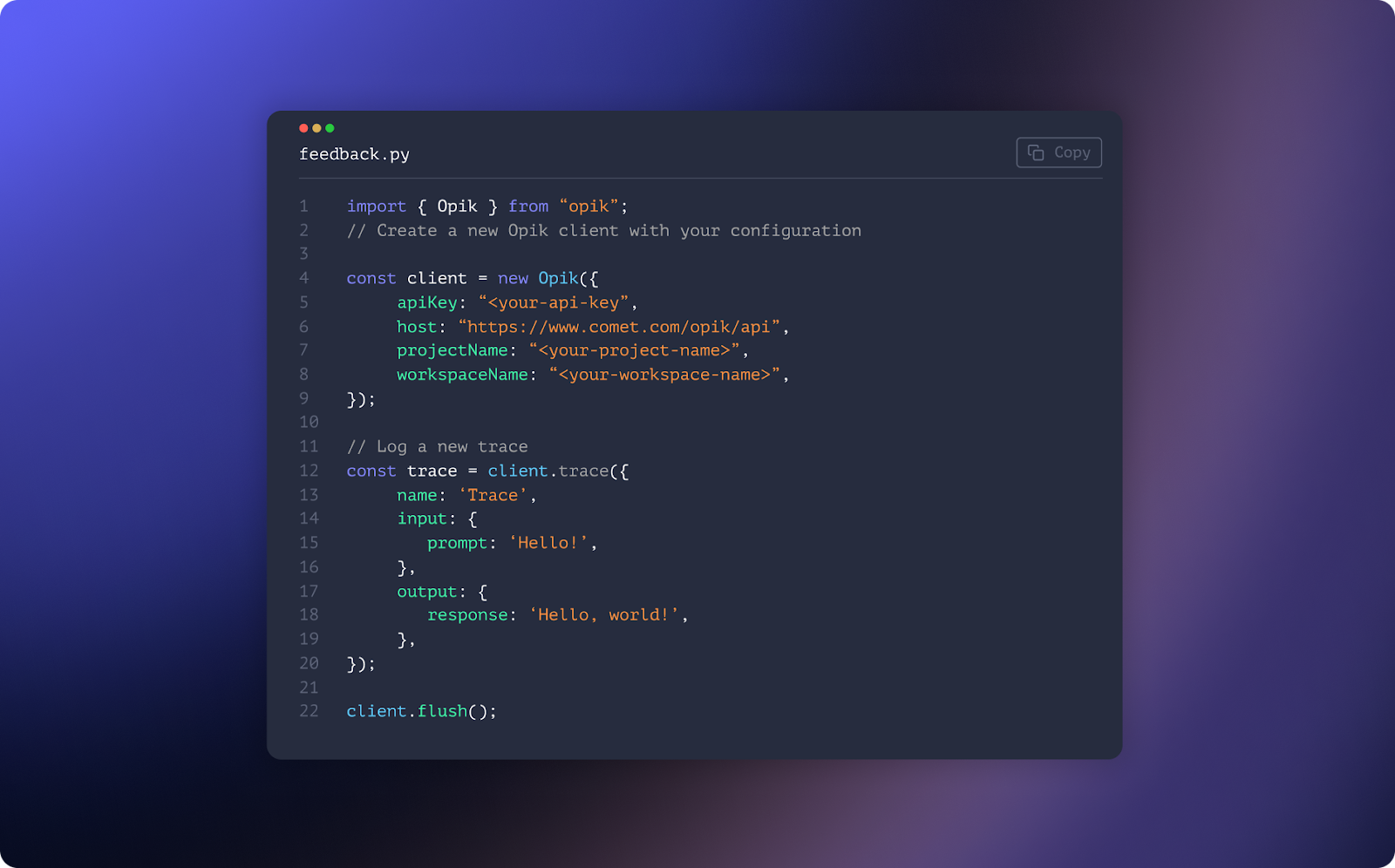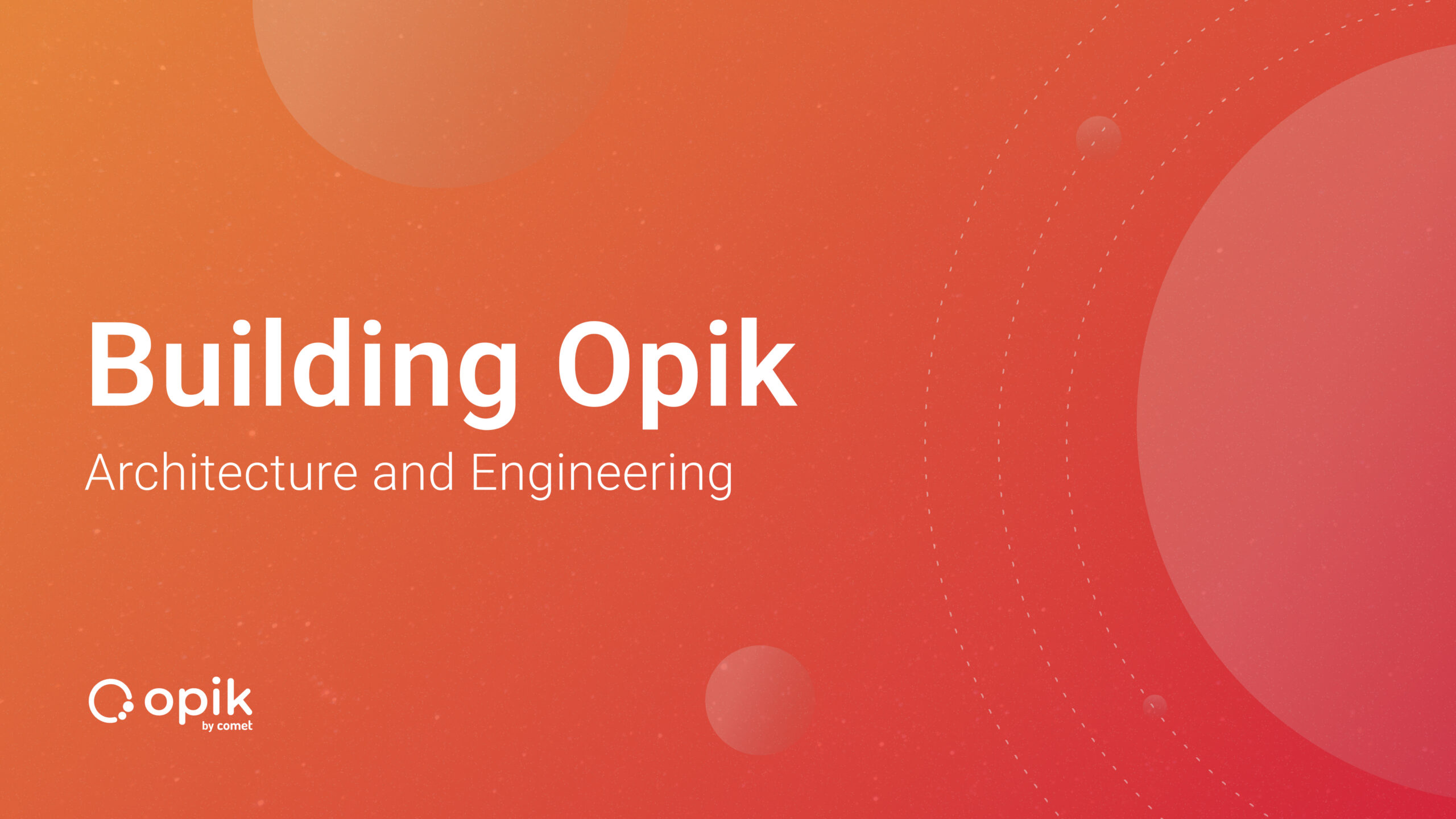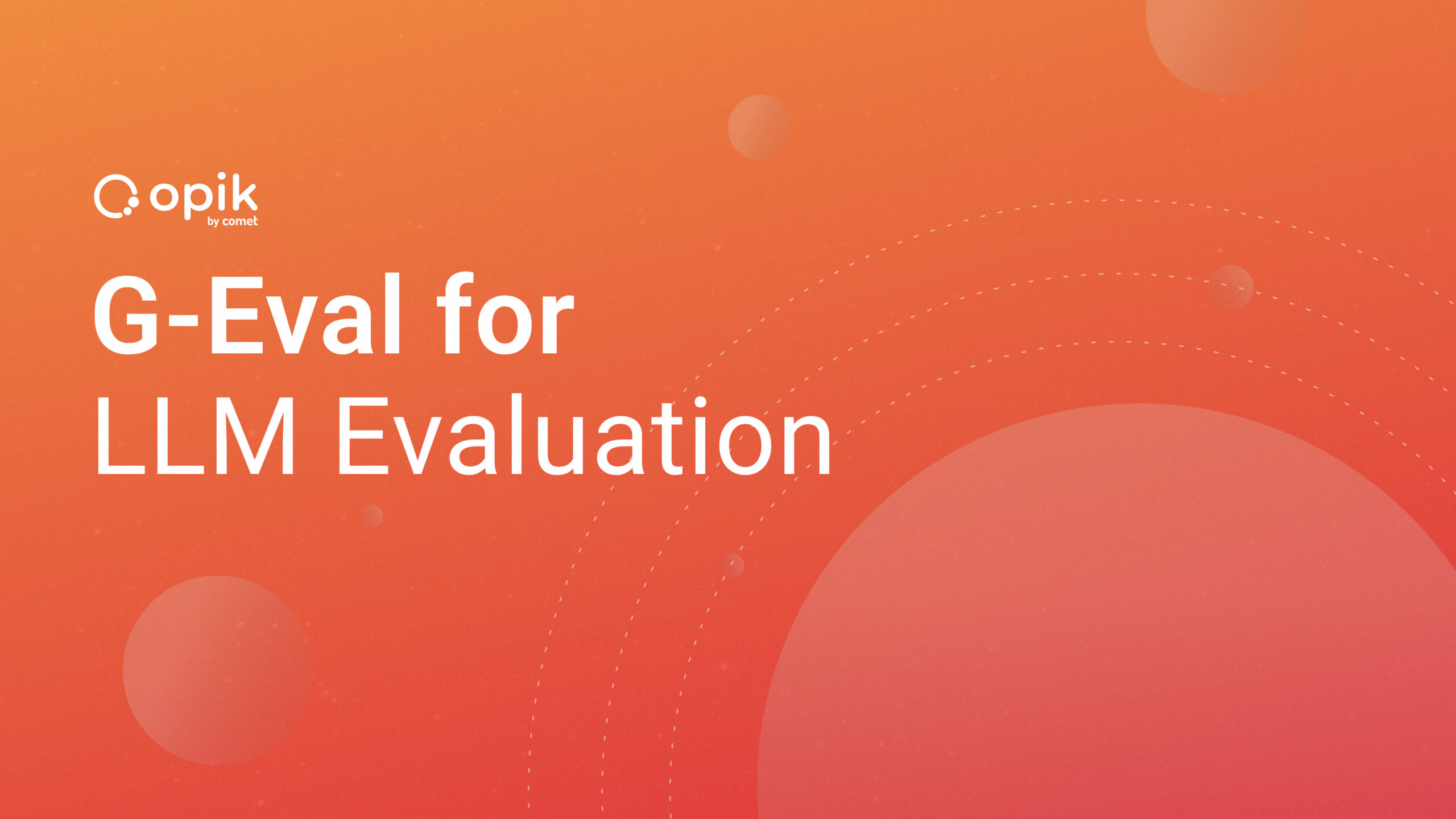Major Releases: MCP Server & Google Agent Dev Kit Support
We’ve just rolled out two major updates in Opik, Comet’s open-source LLM evaluation platform, that make it easier than ever to build, test, and evaluate your AI agents — all in one place!
Opik’s Model Context Protocol (MCP) Server, which simplifies how you manage prompts, traces, and projects across your LLM stack, is now live! We’ve expanded support for agentic development with a new integration for Google’s Agent Development Kit (ADK), providing teams building with Gemini models and Google AI tools with full trace visibility directly in Opik.
Read on for more details on these releases and how to start using them — plus, check out a powerful new integration with OpenAI’s Agents SDK, a behind-the-scenes look at our engineering team’s architectural decisions building Opik, and a roundup of community events where you can connect with fellow AI developers and stay on top of the latest trends.
Opik: Model Context Protocol Server
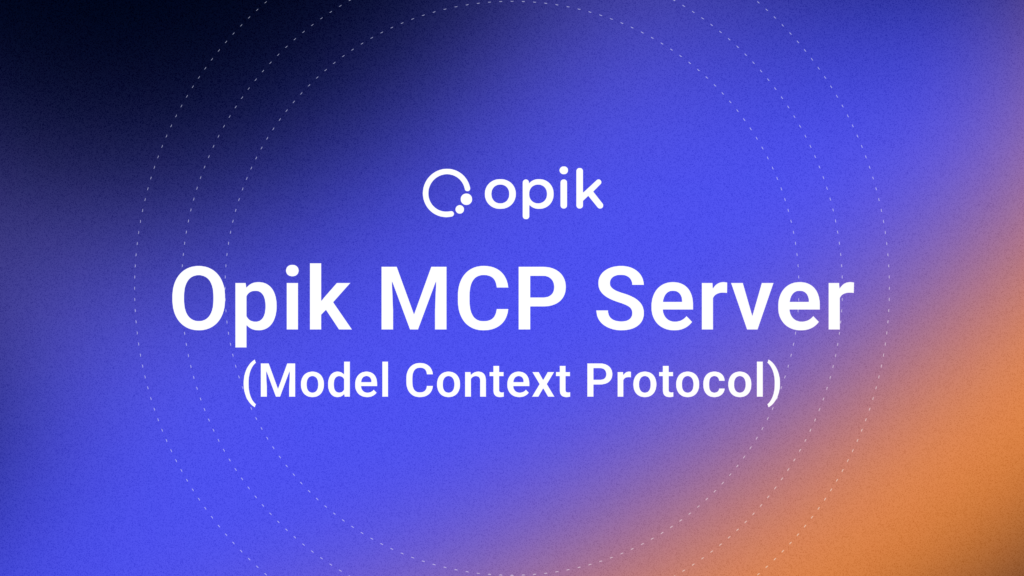
Opik’s MCP Server is an open-source implementation of the Model Context Protocol that provides a unified interface for accessing Opik’s capabilities. It supports multiple transport mechanisms (like stdio and SSE) for flexible integration into IDEs like Cursor and other environments. With MCP, you can manage prompts, projects, and traces through a consistent API, streamlining everything from local development to production monitoring.
Opik: Agent Development Kit (ADK) Support
Opik now integrates directly with Google’s Agent Development Kit (ADK), a framework for building AI agents using Gemini models and Google AI tools. ADK supports popular LLMs and open-source components, making it easy to start with simple agents or scale to complex, multi-agent systems. With this integration, Opik captures trace data for all ADK agent executions, giving you deep visibility into agent behavior and orchestration.
Opik: OpenAI Agents SDK Integration
Opik now supports a native integration with OpenAI’s new Agents framework — a powerful set of building blocks for creating agentic systems. Agents include support for all OpenAI models, tool use via function calling, built-in memory and knowledge via vector stores and embeddings (OpenAI & Anthropic), and parallel Guardrail checks for secure and efficient execution. With just one line of code, you can connect Agents to Opik and analyze and debug the full execution flow.
Insights From the Comet Engineering Team
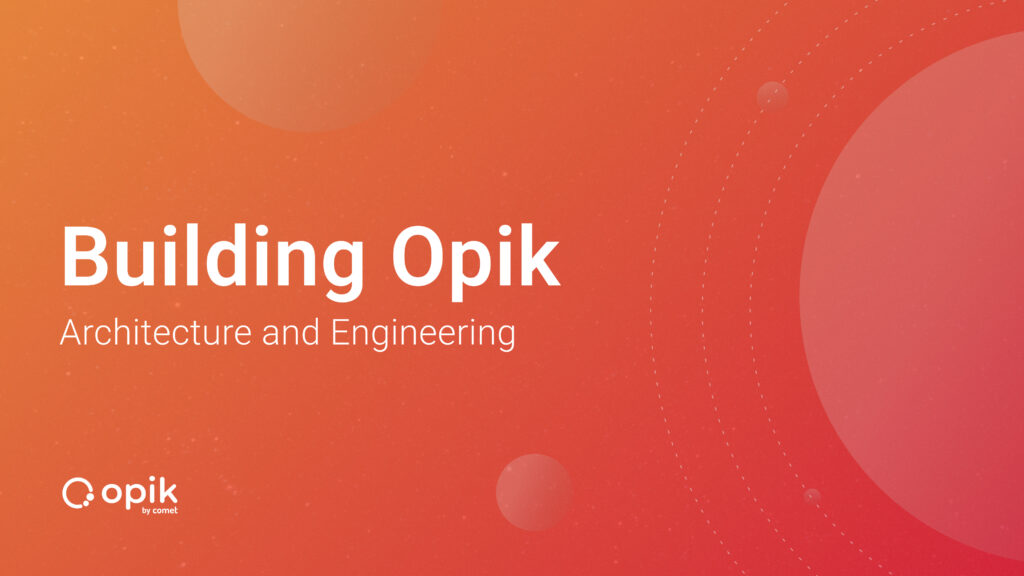
When we started building Opik, we knew it needed to be both open source and massively scalable, with extensibility to perform a wide variety of tasks well for teams integrating LLMs into their own applications. In this behind-the-scenes look, the project’s engineering lead shares insight into the architectural decisions and technical details we chose to meet those requirements. We hope it’s useful for others building complex production systems.
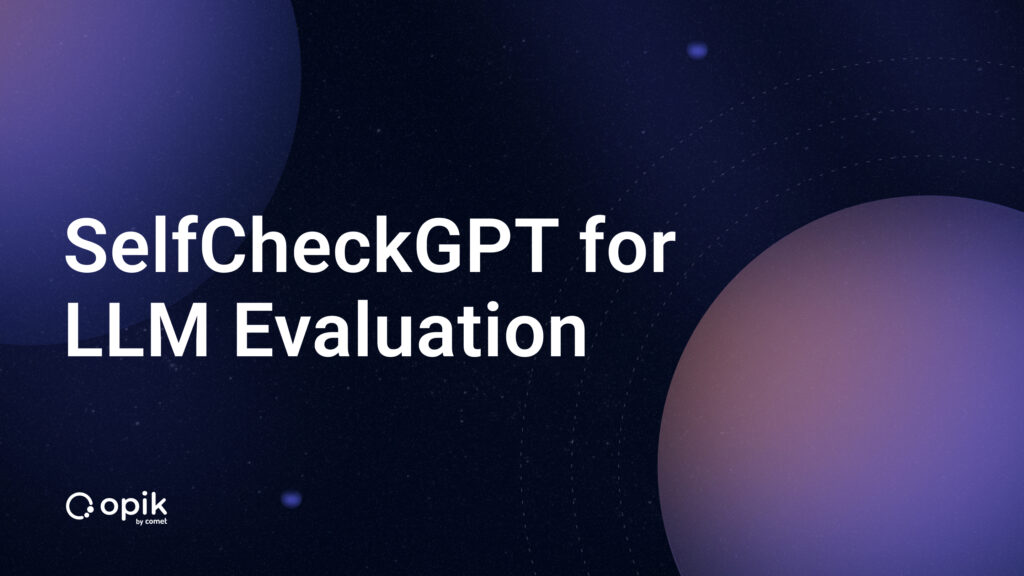
Explore how SelfCheckGPT offers a reference-free approach to detecting hallucinations in LLM outputs. You will learn how response consistency can be utilized for evaluation, its optimal application, and how it can be integrated into broader evaluation pipelines.
Connect & Learn with Fellow GenAI Developers
Join us live in the coming weeks for the following demos, workshops, prizes, and opportunities to connect with fellow AI builders:
- 2025 AWS Summit – London, April 30th
- Inaugural AI Tinkerers Las Vegas Meetup – Las Vegas, May 8th
- Convergence 2025 by Comet – Virtual, May 13th-14th
